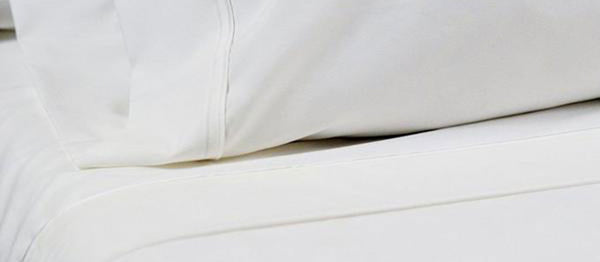
Mythbusting Organic Cotton Sheets: Part I
Remember that show Mythbusters? Two guys would test the validity of common myths, and they generally blew some stuff up. Perfectlinens.com did some of our own Mythbusting on organic cotton sheets. We didn't blow anything up in the process though. Here are some common myths (and little known truths) about organic cotton sheets.
Myth 1: Organic Sheets Must Be Chemical Free
Not exactly true. Not everything is as it seems. Even if the cotton is truly organic to begin with, organic sheets are made with chemicals after the fiber stage. In fact, most organic sheets use more chemicals than regular sheets. So in an effort to go chemical free, you could be unintentionally exposing yourself and your loved ones to the exact things you are trying to avoid. Say what?!
Going back to the produce section from Part I of our organic blog series: If you think about organic carrots they’re shorter, rougher, and ‘knobbier’ in contrast to non-organic carrots. When compared to conventional fruits and other plants, organic products are typically inferior both visibly as well as structurally. Without the help of synthetic fertilizers and pesticides, stronger, longer, finer more-uniform cotton fiber cannot be grown.
This is because organically-grown plants are relatively “starved” of plant nutrients compared to their non-organic counterparts. They're also more susceptible to insect pests, which lower the crop yield (organic farms produce only 40% as much cotton as non-organic farms). These nutrient deficiencies and pests also injure the growing cotton in ways that affect how sheets feel to the touch.
So how do they make organic cotton sheets feel like "regular" soft sheets? It's simple! Higher doses of synthetic chemicals can make inferior organic cotton behave as non-organic cotton. These chemicals include: detergents, optical brighteners, biocides, wetting agents, lubricants, sequestering agents, stabilizers, emulsifiers, complexing agents, and softeners. That's quite the list!!
Myth 2: The USDA verifies organic cotton suppliers.
Again... not quite. It is true that the USDA (US Department of Agriculture) is the sole authority to verify organic cotton is grown without genetically-modified (GMO) seeds and without synthetic fertilizers or synthetic pesticides. That seems quite legit, right? We're feeling good about that. But that's where the plot twists: the USDA does not do the job itself. Instead, the USDA certifies 3rd-party agencies. At least they're verifying something! But there are some issues at play here: the 3rd-party agencies rely on a paper-based physical chain of custody and only one unannounced inspection per year. The USDA is less involved than we would have assumed:
- The USDA provides no oversight after the fiber stage. Once organic cotton leaves the farm, it travels thousands of miles and trades hands dozens of times before it reaches you in the form of sheets. The opportunities for mishaps are plentiful and worrisome, ranging from shipping mistakes to unscrupulous suppliers who misrepresent their cotton as organic.
- 47% of the 3rd-party agencies failed to uphold basic USDA standards according to an investigation by the Wall Street Journal.
- 3rd party agencies cannot monitor farms 24 hours per day, 365 days per year. Whether accidental or intentional, contamination (synthetic pesticides meant for an adjoining crop ending up on organic crops) is a frequent problem, especially considering most organic cotton comes from countries which have very little oversight regarding the enforcement of regulations.
- There have been cases of outright fraud. Supply chain security is vulnerable when farmers can double their profits by mislabeling cotton as organic. What mechanism ensures or determines organic cotton’s authenticity? No definitive international study has been carried out on the scope of the fraud. Lapses or misrepresentation by first-time offenders incur warnings but generally no penalties. Repeat or flagrant errors simply disqualify the farmer but fines or penalties are small and are rarely applied.
Again, this information is troubling! There is so much misleading information out there that it is hard not to be led astray. Very frustrating!

What do you think about these common misconceptions? Have you been duped? If so, we have more mind blowing myths to bust in our next post Mythbusting Organic Cotton Sheets: Part II
Also in Snooze News to Peruse (Our Blog)





